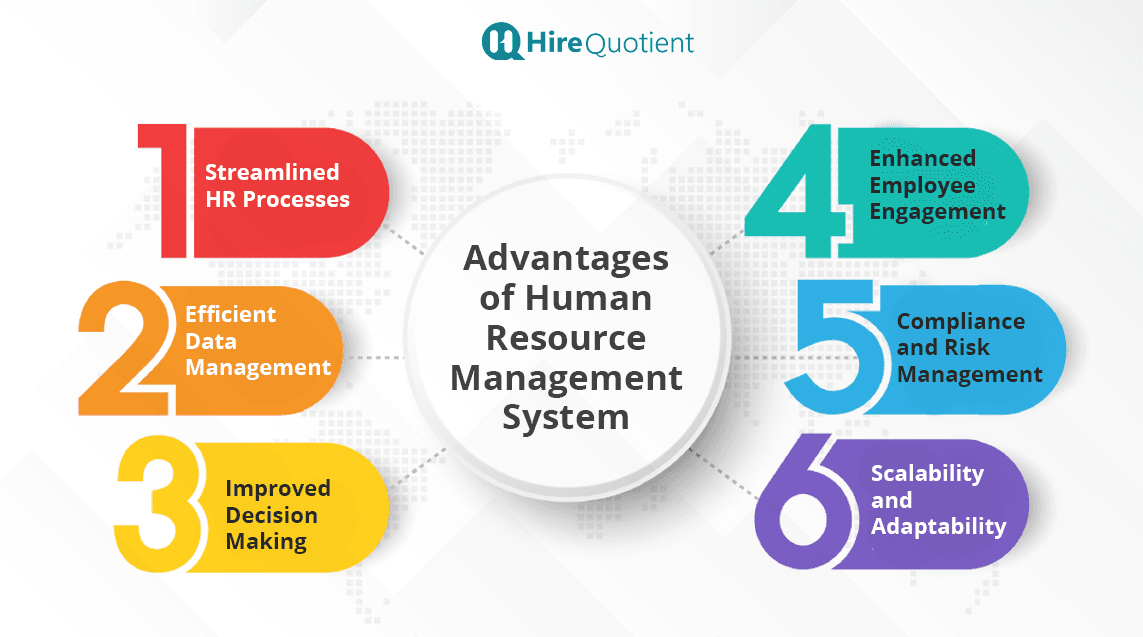Advantages of Human Resource Management System
Published on June 6th, 2023
In the modern era of business, organizations face increasing complexities in managing their human resources effectively. This is where a Human Resource Management System (HRMS) emerges as a valuable solution. An HRMS is a comprehensive software platform that integrates various HR functions into a unified system.
In this blog, we will delve into the advantages of a Human Resource Management System and how it empowers organizations to optimize their HR processes, improve decision-making, and foster employee engagement.
Streamlined HR Processes
One of the significant advantages of implementing a Human Resource Management System is the streamlining of HR processes. Traditional manual methods of managing HR tasks, such as recruitment, onboarding, attendance tracking, and leave management, can be time-consuming and prone to errors. An HRMS automates these processes, eliminating manual paperwork and reducing administrative burdens. This automation not only saves time but also ensures accuracy, consistency, and compliance with relevant policies and regulations.
Efficient Data Management
An HRMS provides a centralized database for storing and managing employee information. This centralized approach offers several advantages in terms of data management. HR professionals can easily access and update employee data, reducing the need for manual record-keeping and minimizing the risk of data duplication or loss. Furthermore, an HRMS ensures data security and confidentiality, allowing organizations to comply with data protection regulations.
Improved Decision-Making
With its advanced reporting and analytics capabilities, an HRMS enables HR professionals and decision-makers to gain valuable insights into workforce trends, performance metrics, and HR-related expenses. By generating real-time reports and analytics, an HRMS empowers organizations to make data-driven decisions regarding talent acquisition, workforce planning, performance evaluation, and training initiatives. This not only enhances decision-making but also enables proactive HR strategies aligned with organizational goals.
Enhanced Employee Engagement
Employee engagement is crucial for organizational success and productivity. An HRMS plays a pivotal role in enhancing employee engagement by providing self-service portals and employee-centric features. Through employee self-service portals, employees can access their personal information, update their profiles, view payslips, apply for leave, and access training resources. This self-service functionality empowers employees, increases their autonomy, and fosters a sense of ownership and engagement with their HR-related tasks.
Compliance and Risk Management
Staying compliant with labor laws, regulations, and industry standards is a critical aspect of HR management. An HRMS helps organizations ensure compliance by automating various HR processes and generating accurate reports. By incorporating built-in compliance features, such as payroll tax calculations, benefits administration, and leave tracking, an HRMS reduces the risk of non-compliance and associated penalties. This provides organizations with peace of mind and ensures that HR practices align with legal requirements.
Scalability and Adaptability
As organizations grow and evolve, their HR requirements change. An HRMS offers scalability and adaptability to accommodate these changing needs. Whether it's handling a larger workforce, expanding to new locations, or integrating with other business systems, an HRMS provides the flexibility to scale and adapt without disrupting existing HR processes. This scalability ensures that organizations can effectively manage their HR operations as they grow and adapt to market dynamics.
Conclusion
Implementing a Human Resource Management System brings numerous advantages that can transform HR operations and drive organizational success. From streamlining HR processes and efficient data management to improving decision-making, fostering employee engagement, ensuring compliance, and offering scalability, an HRMS empowers organizations to optimize their HR functions. By embracing the advantages of an HRMS, organizations can enhance their HR efficiency, improve employee satisfaction, and gain a competitive edge in today's dynamic business environment.
Related topics:
Authors

Vinaya Birkodi
Vinaya is a Social Media Strategist and Content Writer with a passion for content that connects. She blends data, trends, and storytelling to craft content that doesn’t just perform it resonates. When she’s not decoding algorithms or building brand love online, you’ll find her exploring creative outlets like photography and short-form video. Always online, always on-brand.
Hire the best without stress
Ask us how
Never Miss The Updates
We cover all recruitment, talent analytics, L&D, DEI, pre-employment, candidate screening, and hiring tools. Join our force & subscribe now!
Stay On Top Of Everything In HR

